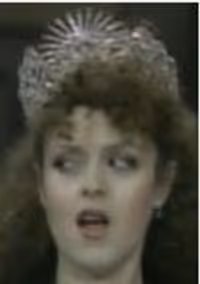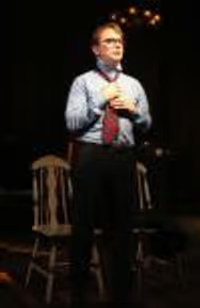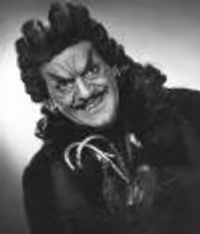What makes a 'good score', a 'good score'?
#1What makes a 'good score', a 'good score'?
Posted: 3/6/10 at 8:34pm
What do you think makes a 'good score' a 'good score'? (Or a bad score a bad score).
I.e. on what criteria do you judge a musical score?
Scott Briefer
Broadway Star Joined: 5/3/04
#2What makes a 'good score', a 'good score'?
Posted: 3/6/10 at 8:37pmMusically, how it moves me. Lyrically, how it challenges me.
#2What makes a 'good score', a 'good score'?
Posted: 3/6/10 at 8:47pmTwo Words: Frank. Wildhorn. Updated On: 3/6/10 at 08:47 PM
#3What makes a 'good score', a 'good score'?
Posted: 3/6/10 at 8:55pm
For me, it's a combination of
1. How well the lyrics and music together convey the story and what the characters are feeling.
2. How clever the lyrics are.
3. How memorable the melodies are.
(In that order.)
#4What makes a 'good score', a 'good score'?
Posted: 3/6/10 at 9:00pmBy how conflicted I feel when listening to it, because part of me wants to skip back and hear the last song again and another part of me can't wait to get to the next one.
#5What makes a 'good score', a 'good score'?
Posted: 3/6/10 at 10:06pm
I like to hear something that sounds different (but not completely...weird) that does a good job of telling to story.
I hate to hear the same chord progressions/riffs/whatever used over and over in different shows. I understand that some composers have a "style" but I don't like every one of their shows to sound the same.
#7What makes a 'good score', a 'good score'?
Posted: 3/6/10 at 10:29pm
To me, a good score is one that tells the story through song and dance by setting the proper mood & tone. The score is the foundation for the lyrics, movement, and pace of the piece. A score can sound "good" on its own, but it's only "good" if it services the show. It's an equal collaboration with the book. When do we sing? When do we speak? When do we dance? In other words: both the composer and the playwright must collaborate to decide which moments of the story are better served with music.
Sometimes, the writer will decide that music is necessary for the entire piece. Other times, you get the opposite and have a play with songs. Or you have a play with underscoring. Or a play with absolutely no music whatsoever. It really doesn't matter how the story is told (music or no music), as long as it is told effectively. Just look at the story of RAGTIME. How did Doctrow's story move you most? Through page (novel), screen (non-musical), or stage (musical)?
--Aristotle
Q
Broadway Legend Joined: 11/3/05
#8What makes a 'good score', a 'good score'?
Posted: 3/7/10 at 2:28am
"How clever the lyrics are."
Really? Even if that 'cleverness' isn't in any way identifiable with the character charged with singing them?
Yes, I had Sondheim in mind when I thought that.
#9What makes a 'good score', a 'good score'?
Posted: 3/7/10 at 4:22am
I've never understood the concept of the lyrics "challenging" people. If someone can please explain that to me so I can understand it better, then by all means, please do.
To me, it is deemed "good" or "bad" based on the repeat factor. If I listen to a score and I want to listen to it again, then it's good. If it's one that irritates me ("Legally Blonde") then it goes in the "bad score" pile.
#10What makes a 'good score', a 'good score'?
Posted: 3/7/10 at 4:27am
I think 'challenging' means it is somehow insightful or changes the way you look at something (i.e. it challenges your opinions).
E.g. If Anyone can Whistle harps on about 'not judging a book by its cover', it isn't very challenging as we already accept this to be true. (Though if it was the first experience ever of realising 'not to just a book by its cover' then perhaps it is challenging).
#11What makes a 'good score', a 'good score'?
Posted: 3/7/10 at 4:36am
Well, then "challenging" shows/lyrics are subjective then? Does that make sense? For example, some people write RENT off as a crappy, rock musical. BUT, for me, it changed my views on many things including homosexuality and the meaning of love.
I hear all the time that Sondheim's music is "challenging" but I have never listened to one of his shows and had a revelation or whatnot.
Is any of that making any kind of sense? See, this is what happens when you try to wrap your brain around something at 4:30am. lol
#12What makes a 'good score', a 'good score'?
Posted: 3/7/10 at 4:42am
You do make sense. Of course it depends on the 'context and values' of the audience.
A child might find Shrek's exploitation of farts challenging, but a seasoned theatre-goer might say that it is not. So although it is subjective, I think it's a bit too complicated to write the concept off as not a good measure because it is completely subjective (when you can consider an average audience members values and things).
Jon
Broadway Legend Joined: 2/20/04
#13What makes a 'good score', a 'good score'?
Posted: 3/7/10 at 1:49pm
A "good score" should hold together as a unified work. Many musicals these days seem to be made up of "a bunch of songs" that have no thematic or stylistic connection. Of course, orchestration and arrangements have a lot to do with this.
A good score should also sound like it could POSSIBLY have been written when the show TAKES PLACE. In the 1960's, there were a lot of "period pieces" with pop/rock scores, such as the flop "Canturbury Tales". It makes you appreciate scores like "1776", which actually somewhat sounded like it could have been written by Mozart.
Videos







